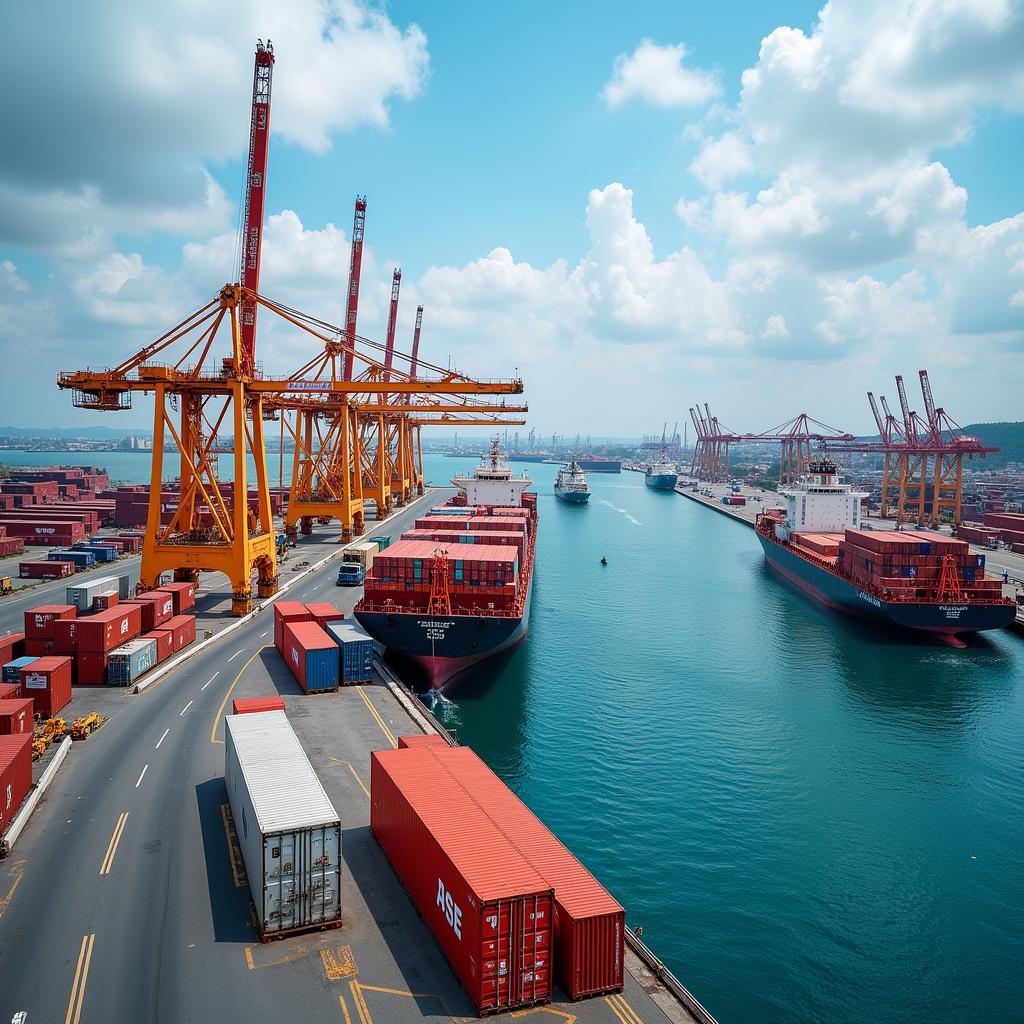The South China Sea dispute represents a complex geopolitical challenge with significant implications for ASEAN member states. While “Asean And South China Sea Pdf” is a common search term for those seeking information on the issue, understanding the nuances of the dispute requires delving deeper into available resources. This article examines the multifaceted aspects of the South China Sea conflict and highlights key PDF documents that provide valuable insights into this critical regional issue.
The Complexities of the South China Sea Dispute
The South China Sea, home to vital shipping lanes and potentially rich energy resources, has become a focal point of territorial disputes involving China and several ASEAN member states, including Vietnam, the Philippines, Malaysia, and Brunei. These nations have overlapping claims over islands, reefs, and maritime zones, leading to heightened tensions and potential for conflict.
The dispute’s complexity stems from historical grievances, nationalistic sentiments, and strategic considerations. China’s expansive “nine-dash line” claim, encompassing a vast area of the South China Sea, has been a major point of contention. This assertion overlaps with the Exclusive Economic Zones (EEZs) claimed by other Southeast Asian nations under the United Nations Convention on the Law of the Sea (UNCLOS).
The Role of ASEAN in Managing Tensions
ASEAN, as a regional bloc, plays a crucial role in fostering dialogue and cooperation to manage tensions in the South China Sea. The organization has consistently advocated for a peaceful resolution based on international law, particularly UNCLOS.
ASEAN has engaged with China to establish a Code of Conduct (COC) in the South China Sea, aiming to prevent misunderstandings and accidental clashes. While progress on the COC has been slow, it remains a crucial platform for diplomatic engagement and confidence-building measures.
Key ASEAN and South China Sea PDF Resources
Several PDF documents provide in-depth analysis, legal perspectives, and policy recommendations regarding the South China Sea dispute. These resources are invaluable for researchers, policymakers, and anyone seeking a comprehensive understanding of this complex issue.
- Declaration on the Conduct of Parties in the South China Sea (DOC): Adopted in 2002, the DOC outlines a set of non-binding principles for managing maritime conduct and promoting cooperation in the South China Sea.
-
ASEAN Outlook on the Indo-Pacific (AOIP): The AOIP, adopted in 2019, emphasizes ASEAN’s commitment to maintaining peace, stability, and prosperity in the Indo-Pacific region, including the South China Sea.
-
Asia Maritime Transparency Initiative (AMTI): AMTI is an independent initiative that provides regular updates, analysis, and data on maritime security issues in the Asia-Pacific, including the South China Sea. Their website offers numerous PDF reports and publications.
-
Center for Strategic and International Studies (CSIS): CSIS, a leading think tank in Washington, D.C., has published extensively on the South China Sea. Their “Asia Maritime Transparency Initiative” website provides detailed analysis, satellite imagery, and interactive maps related to the dispute.
Navigating the Future: Diplomacy and Cooperation
The South China Sea dispute remains a complex and sensitive issue. Finding a peaceful and lasting solution requires continued diplomacy, adherence to international law, and a commitment to cooperation among all involved parties.
“The South China Sea is not just about territorial claims but also about the livelihoods of millions of people who depend on its resources,” says Dr. Nguyen Thi Lan Anh, a maritime security expert at the Diplomatic Academy of Vietnam.
ASEAN’s role as a facilitator of dialogue and a proponent of a rules-based order remains crucial. Utilizing existing mechanisms such as the DOC and pursuing a substantive COC are essential steps towards mitigating tensions and fostering a more stable and predictable maritime environment.
Conclusion
Understanding the complexities of the South China Sea dispute requires access to reliable and informative resources. PDF documents, including official declarations, policy papers, and academic analyses, provide invaluable insights into the historical context, legal frameworks, and ongoing diplomatic efforts related to this critical geopolitical issue. By engaging with these resources, we can gain a deeper understanding of the challenges and opportunities that lie ahead in navigating the South China Sea dispute.
Need More Information on ASEAN and Southeast Asia?
Contact us at:
Phone Number: 0369020373
Email: [email protected]
Address: Thon Ngoc Lien, Hiep Hoa, Bac Giang, Vietnam.
Our dedicated customer support team is available 24/7 to assist you.

